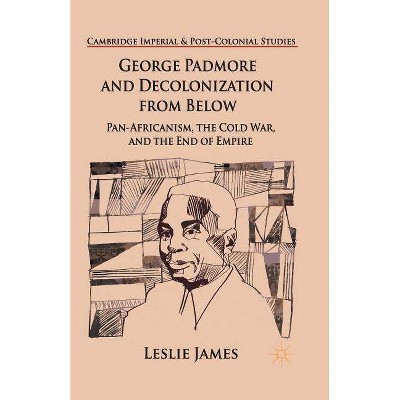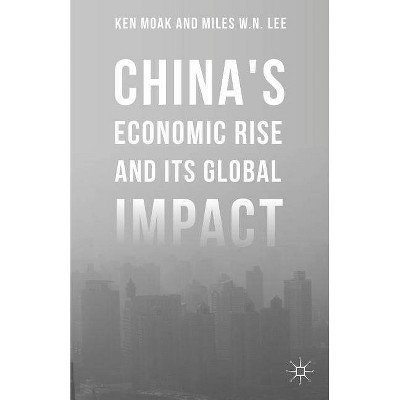Decolonization and Its Impact - by Martin Shipway (Paperback)

Similar Products
Products of same category from the store
AllProduct info
<p/><br></br><p><b> Book Synopsis </b></p></br></br><i>Decolonization and its Impact</i> is a ground-breaking comparative study of decolonization from before the Second World War to the early 1960s. <ul> <li>Compares key cases across the European colonial empires</li> <li>Focuses on the process and impact of decolonization at the level of the 'late colonial state' and of colonial societies</li> <li>Presents an original model of decolonization that seeks to reconcile imperial and nationalist perspectives</li> <li>Engages with important theoretical approaches</li> <li>Makes extensive reference to recent literature on the subject</li> </ul><p/><br></br><p><b> From the Back Cover </b></p></br></br><i>Decolonization and its Impact</i> is a ground-breaking comparative study of decolonization from before the Second World War to the early 1960s. It focuses on the process and impact of decolonizationat the level of the 'late colonial state' and of colonial societies, with reference to a number of key cases across the European colonial empires. <p>The book presents an original model of decolonization which seeks to reconcileimperial and nationalist perspectives, and engages with important theoretical approaches. Major themes include: the development of the colonial state; the emergence of nationalist movements and alternatives to nationalism in colonial societies; the interplay between colonial reformism and anti-colonial politics after 1945; wars and emergencies; the impact of decolonization on metropolitan society and politics; and the 'endgame' of decolonization.</p> <p>While decolonization is often seen as 'inevitable', the emphasis throughout the book is on decolonization as a dynamic and often violent political crisis, the resolution of which had many unintended outcomes, not only for the colonial powers but also for post-colonial regimes and societies.</p><p/><br></br><p><b> Review Quotes </b></p></br></br><br><p>Decolonization and its Impact provides a well-written survey of mid-twentieth century decolonization. Shipway's expertise in the French experience of this period is self-evident and, with Madagascar and Sudan, he has focused on case studies which are often overlooked in works of this kind. The book is based on an extensive bibliography, and while not dramatically re-casting existing historical explanations, it will make a welcome addition to undergraduate reading lists on decolonization. <i>(South African Historical Journal, July 2010)</i></p> <p>[The] book represents a notable accomplishment, a feat of stylish synthesis and compression which will inject still greater energy into an already vigorous debate. <i>(H-Soz-u-Kult, </i> June 2010)</p> "This book offers both original insights and a meticulous engagement with the existing historiography on the subject." <i>(</i><i>The American Historical Review, </i> February 2010) <p>It provides a much needed comparative review of European decolonization, grounded in a thorough survey of the most recent literature on the subject ... .A rich, insightful and deeply rewarding survey of decolonization. (<i>The International History Review</i>, December 2009)</p> <p>The scope of the account is global ... with an admirable combination of detail and attention to broad historic trends. Recommended. (<i>CHOICE</i>)</p><br><p/><br></br><p><b> About the Author </b></p></br></br><b>Martin Shipway</b> is Lecturer in French Studies at Birkbeck College, University of London. He is the author of <i>The Road to War: France and Vietnam, 1944-1947</i> (1996) and has written journal articles and book chapters on French colonial policy making and decolonization in Indochina, sub-Saharan Africa, Algeria and Madagascar, as well as on colonial discourse, psychology and photography, and on post-colonial memory.
Price History
Price Archive shows prices from various stores, lets you see history and find the cheapest. There is no actual sale on the website. For all support, inquiry and suggestion messagescommunication@pricearchive.us




















